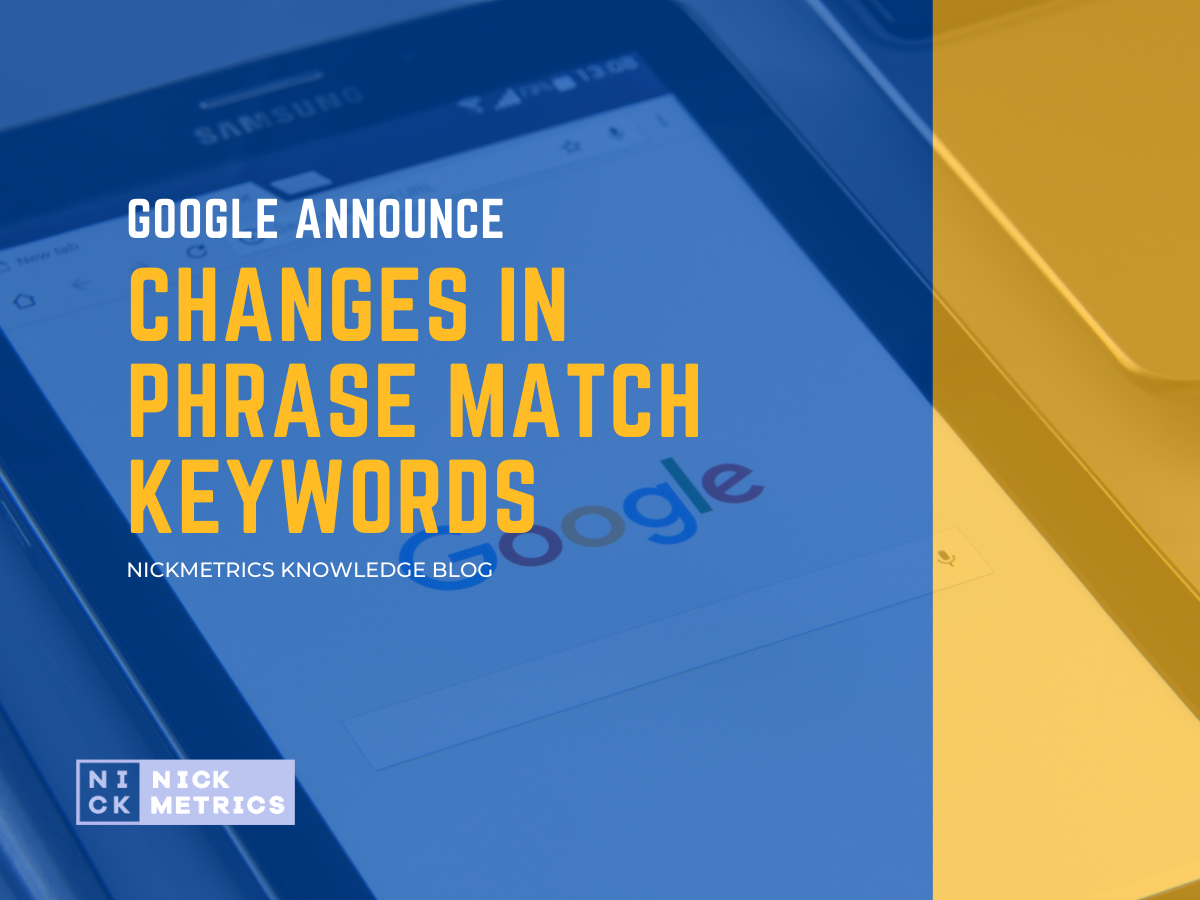
ENTER YOUR EMAIL ADDRESS
Follow Us

This year has seen some significant changes to Google’s phrase match. They recently announced a broadening of their match criteria. This is a huge win for anyone who would want to promote their business in search engine. These changes mean that online ads would have a much broader reach than they did before. Businesses and also websites will potentially see a substantial surge in traffic. But what does this all mean and how will it affect your company? And what is the best way to make the most of these changes? A while ago, Google Ads announced some massive changes to its phrase match modifies, making it significantly easier to promote content online. Before we get into the changes, let us take a look at what phrase match is.
Subscribe To Nickmetrics Official Telegram Channel
Have you ever looked up something related to dogs, for example, and suddenly you see ads for dog food everywhere you go? This is Google’s phrase match at work. It allows advertisers to target their audience using particular words, also known as keywords. Essentially, this means that people will see advertisements related to the phrase they look up.
Not too long ago, all advertisements had been exact match keywords. This meant that for their advertisement to be visible, a person would have had to search for the same keywords that the advertiser bid on. Although this was restrictive, it gave the advertiser control over who exactly they targeted. It also gave them control over the budget, which, when successful, would have resulted in a high ROI as it was guaranteed that those adverts would only reach those individuals who were interested in that product or service. But as you can tell, exact keywords would have its disadvantages.
This is why Google Ads is expanding its criteria to make the exact match keywords, well, not so exact. Instead, close match keywords were adopted. This began in 2014, where common misspellings such as “cat food,” plurals and other such minor variations of search terms were also considered to be a match. In 2017, they further expanded their criteria to include variations in word order, so “how to fix a flat tire” and “flat tire how to fix” will yield the same results. Another change was function words, as the addition or omission of words like “and” or “in” or “what” wouldn’t make a difference. The searches “how to do the best in sports” and “sports betting how” would be able to see the same advertisements.
And this brings us to the most recent update. Google Ads has now expanded its criteria to include close variation keyword, which would work as a broad match. They now include the same meaning words. This means that “day-care” will be the same as “place to take care of my child in the day”, and “farmhouses near me” would be the same as “barns near me’, “handbags” would be the same as “women’s purse”, or “shortbread cookies” is the same as “ shortbread biscuits” and so on. Google Ads pretty much understands the implication of the search and matches them up with relevant ads.
Tags: Close Match Keywords, Google Ads, Marketing Insights, Phrase Match